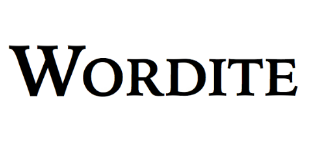swan - What does it mean?
'swan' hits on the web
You may have been searching for a specific social media @swan profile or the tag #swan
Definition of 'swan'Etymology 1
From (etyl) (m), from (etyl) .
Noun
(en-noun)
Any of various species of large, long-necked waterfowl, of genus Cygnus , most of which have white plumage.
(figuratively) One whose grace etc. suggests a swan.
Derived terms
* swanling
* swan species: black swan, black-necked swan, mute swan, trumpeter swan, tundra swan, whooper swan
* swan boat
* swan dive
* swanherd
* swannery
* swansdown
* swanskin
* swan song
See also
* cob (adult male)
* cygnet (epicene, young)
* lamentation
* pen (adult female)
Verb
( swann)
(British) To travel or move about in an aimless, idle, or pretentiously casual way.
* 2010 , Lee Rourke, The Canal , Melville House Publishing (2010), ISBN 9781935554905, unnumbered page :
- He swans' around that stinking office in his expensive clothes that are a little too tight for comfort, he ' swans around that stinking office without a care in the world.
* 2013 , Tilly Bagshawe, One Summer’s Afternoon , HarperCollins (2013), ISBN 9780007472550, unnumbered page :
- One of the few strokes of good luck Emma had had in recent days was the news that Tatiana Flint-Hamilton, her only real rival for top billing as 'most photographable girl' at today's event had decided to swan off to Sardinia instead, leaving the limelight entirely to Emma.
Usage notes
* In the sense "to travel", usually used as part of the phrase "to swan about" or "to swan around".
Etymology 2
Probably from dialectal , contraction of "I shall warrant"; later seen as a minced form of (term).
Verb
( swann)
(US|slang) To declare (chiefly in first-person present constructions).
* 1907 December, J. D. Archer, Foiling an eavesdropper'', in ''Telephony , volume 14, page 345:
- "Well, I swan , man, I had a better opinion of you than that."
* 1940 , (Raymond Chandler), Farewell, My Lovely , Penguin 2010, page 214:
- ‘She slammed the door so hard I figured a window'd break .’ ‘I swan ,’ I said.
Anagrams
* (l)
* (l)
* (l)
* (l)
----
Similar to 'swan'sun, son, sin, seen, sewn, shown, san, skein, syn, skin, sein, soon, scion, shewn, sen, scan, sheen, swain, shin, sean, shun, sken, sawn, sqn, sown, swoon, sain, sien, shan, saun, seuen, shoon, seyon, syen, sion, syon, scyon, scien, scyen, sowen, sgn, sewin, sewen, skean, swown, skain, sunn
|
